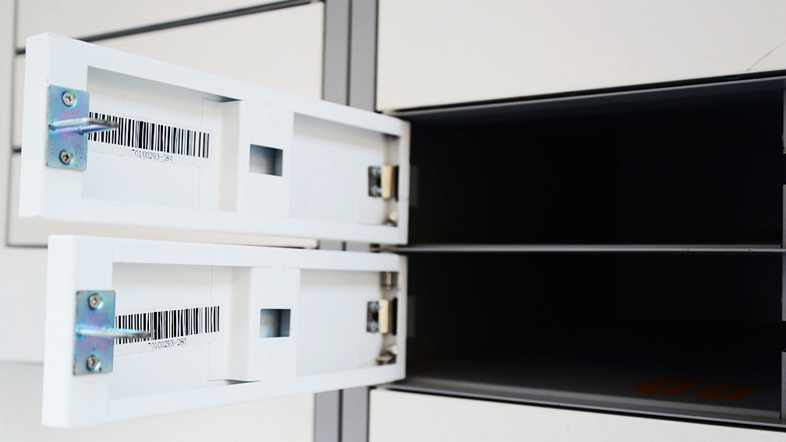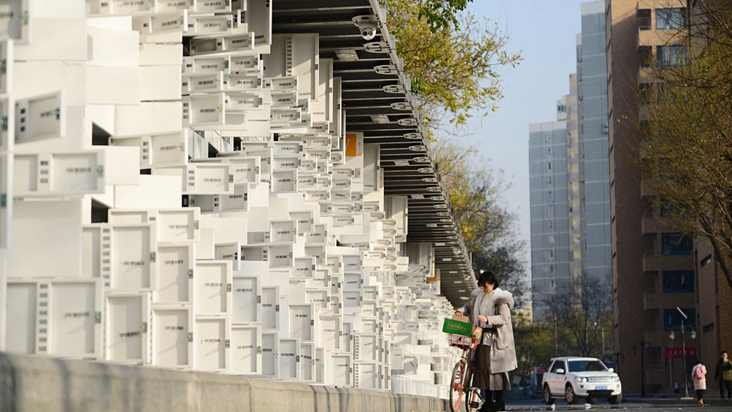02:16

The past century has witnessed groundbreaking transformation in the global delivery system. Smart delivery has become increasingly popular in China.
Zhang Xiaogang, a deliveryman in Shanghai, makes deliveries in several neighborhoods in the city center. He handles several hundred packages a day. However, in the last two years, his life has gotten easier with more neighborhoods installing delivery lockers.
Zhang usually puts smaller packages and clothes into the lockers, but delivers groceries and bigger boxes directly at the door. Once a package goes into the locker, the recipient gets informed via text message. Therefore, recipients, who used to worry about their packages, now feel much relieved getting notified: "Your package is in the locker."
However, these smart lockers are not owned by the delivery companies. Zhang estimates that in his neighborhoods alone, his company is spending 1,000 yuan (about 140 U.S. dollars) per month on lockers.

Smart lockers in the University of International Business and Economics in Beijing. /VCG Photo
Smart lockers in the University of International Business and Economics in Beijing. /VCG Photo
Analysts say smart lockers will become increasingly common in dense urban spaces as companies look for new ways to facilitate package deliveries.
However, many locker-management firms are still struggling with making a profit. For example, Fengchao, a major market player, reported a net loss of 249 million yuan (35 million U.S. dollars) in the first five months last year, with debts totaling 1.7 billion yuan (239 million U.S. dollars).
"Our estimates show that for most of the package locker setups, the cost of hardware, software and maintenance for a small locker totals around 0.45 yuan (6.3 cents), but the average charge is just around 0.35 yuan (4.9 cents) per locker. So it's losing money naturally," said Log Research CEO Pan Yonggang.
A report from China's State Post Bureau shows that 250,000 smart lockers were set up nationwide in the first three quarters of 2018. The report also says that a total of 750,000 units will be available in 2020, with a market value of 30 billion yuan (4.2 billion U.S. dollars).